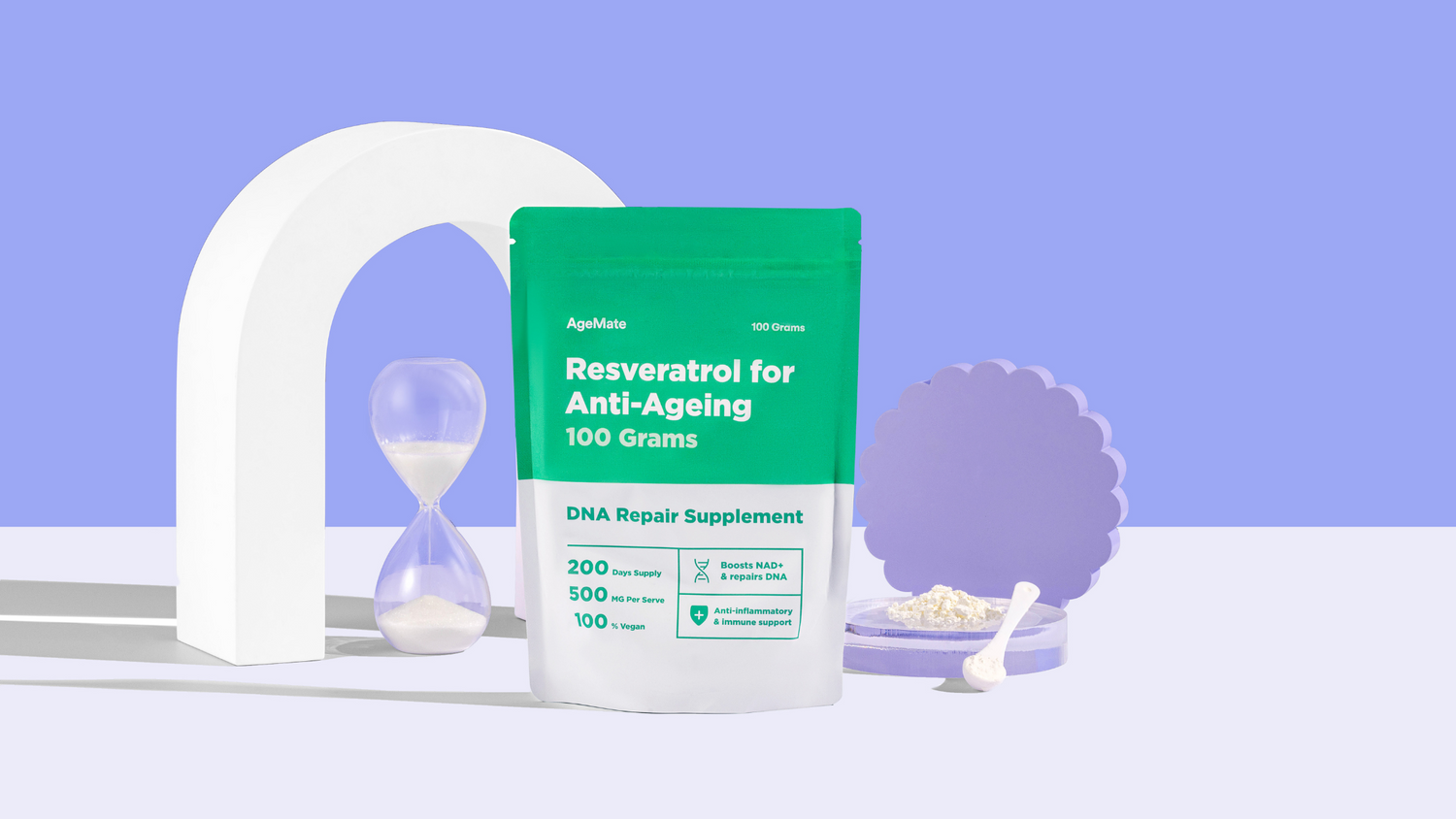Resveratrol has emerged as a beacon of hope in the quest for optimal health and longevity. Found in the skin of red grapes, berries, peanuts, and other plants, this potent polyphenol has captured the attention of the health-conscious community for its impressive array of potential benefits.
From anti-aging effects and improved cardiovascular health to enhanced brain function and beyond, resveratrol's appeal is wide-ranging. Yet, amidst the enthusiasm, a critical question arises: When is the best time to take resveratrol to maximise its benefits?
This article delves into the science behind resveratrol and offers guidance on how to incorporate this powerful antioxidant into your health regimen.
What is Resveratrol?
Before diving into timing, let's explore what makes resveratrol stand out. As a natural antioxidant, resveratrol helps combat oxidative stress in the body, a key factor in the aging process and many chronic diseases (R).
Its potential to mimic the effects of calorie restriction without drastically reducing food intake positions it as an intriguing option for those looking to extend their lifespan and enhance their overall health (R).
When to Take Resveratrol? Morning or Night?
Resveratrol has been shown to have at least 70% absorption, with peak plasma levels achieved within hours of oral ingestion (R). Although, the question of when to take resveratrol is not straightforward, as the answer can vary depending on individual health goals and conditions. However, some general guidelines can help you make the most of this supplement.
For General Health and Longevity:
Taking resveratrol in the afternoon with fatty food such as avocado or olive oil may be advantageous for general health and longevity purposes. Resveratrol is fat-soluble, meaning it's better absorbed when taken with food, particularly meals that include healthy fats.
For Cardiovascular Health:
If you're taking resveratrol specifically for its cardiovascular benefits, including blood pressure reduction and improved blood flow, timing it with your largest meal could enhance absorption (R).
For Exercise Performance and Recovery:
In the context of exercise performance, one study reported that resveratrol supplementation could protect against physical fatigue and improve exercise performance in mice, suggesting potential timing around physical activity to leverage these benefits (R).
For those interested in resveratrol's effects on exercise performance and recovery, taking it approximately one hour before your workout could be beneficial. This timing allows resveratrol to circulate in your system, potentially enhancing endurance and reducing oxidative damage during and after exercise (R).
For Blood Sugar Management:
Timing resveratrol intake with your meals can also be beneficial for blood sugar management. Its potential to improve insulin sensitivity suggests that taking it with your largest carbohydrate-containing meal might help stabilise blood sugar levels (R).
Conclusion
Resveratrol presents an exciting opportunity to enhance health and longevity through natural means. By considering the timing of your intake in relation to your specific health goals, you can potentially maximise the benefits of this powerful antioxidant.
Remember, though, that supplements should complement, not replace, a balanced diet and healthy lifestyle. With a thoughtful approach to resveratrol supplementation, you can tap into the power of nature's bounty in your quest for optimal well-being.





